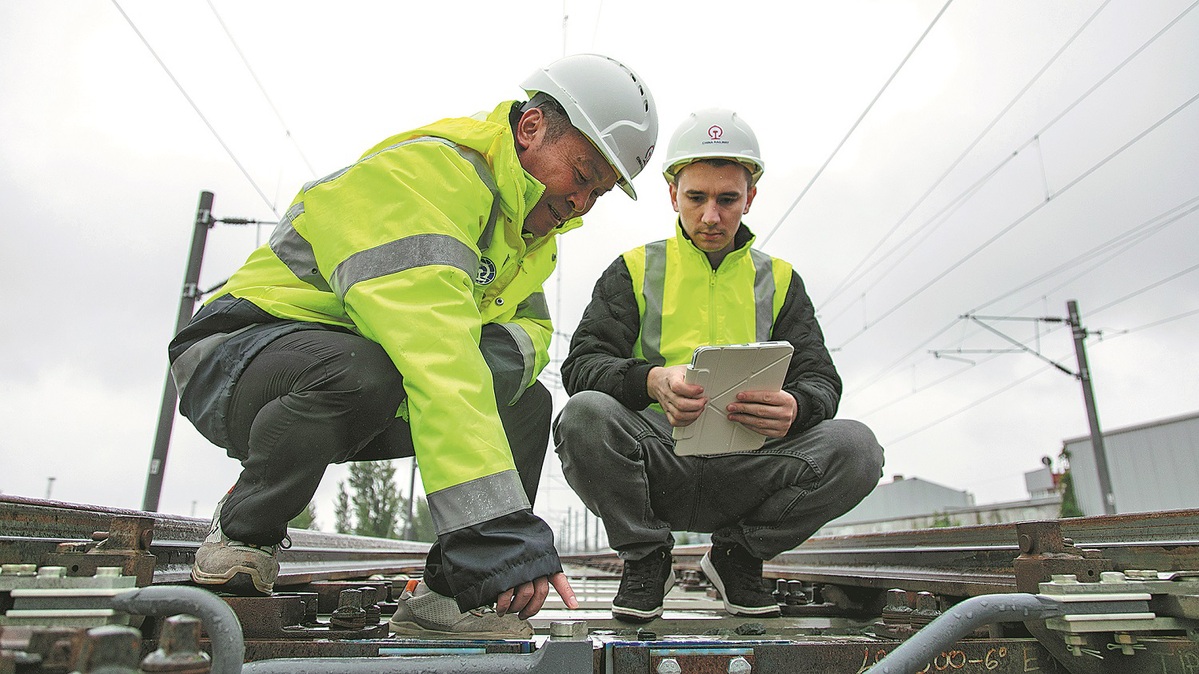Sound, stable ties needed to tackle global challenges
Furthering China-Europe strategic dialogue, win-win cooperation with rise in high-level communications seen as beneficial to prosperity for all


Historic trip
During his visit to France, Xi and French President Emmanuel Macron issued joint statements on the situation in the Middle East, on artificial intelligence and global governance, on biodiversity and oceans, and on agricultural exchanges and cooperation. Nearly 20 bilateral cooperation documents were signed in such areas as green development, aviation, agrifood, commerce and people-to-people exchanges.
As China and France celebrated the 60th anniversary of the establishment of diplomatic ties, Macron noted that the two countries enjoy a friendly relationship and productive cooperation regarding not just cutting-edge technologies but also global issues such as climate change and marine biodiversity.
In Serbia, Xi and his Serbian counterpart, Aleksandar Vucic, together announced the building of a China-Serbia community with a shared future in the new era. Serbia became the first European country to establish such a high-level relationship with China.
Vucic acknowledged China's significant investment in Serbia to help the local economy and improve living standards. He welcomed further Chinese investments, and more direct flights, and ensured the timely completion of the Serbian segment of the Belgrade-Budapest Railway.
In Hungary, Xi held talks with Hungarian President Tamas Sulyok and Prime Minister Viktor Orban. The leaders witnessed the exchange of multiple bilateral cooperation documents on the Belt and Road Initiative, economy and trade, investment, science and technology, culture, and agriculture, among others.
In addition to the Europe visit, Xi also engaged with leaders from Germany, the United Kingdom, Spain and Italy at meetings surrounding the G20 Summit in Brazil, and welcomed heads of European states, including Belgium, the Netherlands, Germany, Poland, Italy, Spain, Finland and Slovakia, in Beijing.
Feng Zhongping, director of the Chinese Academy of Social Sciences' Institute of European Studies, said the visits demonstrate the efforts the two sides are making to promote political mutual trust despite the challenges in China-EU relations.
European countries have realized the importance of pragmatic cooperation with China, as they are closely interconnected in terms of the economy, and such cooperation serves the interests of both sides, he said.
Luigi Gambardella, president of China-EU, a Brussels-based association promoting China-Europe business cooperation, said Italian President Sergio Mattarella's Beijing visit brought commitments to further expand trade, particularly by increasing China's imports of high-quality Italian goods.
Michael Schumann, chairman of the Board of the German Federal Association for Economic Development and Foreign Trade, praised the meeting between Xi and German Chancellor Olaf Scholz which highlighted Sino-German collaboration. Schumann said that Germany's export-driven economy has long thrived on international cooperation.
For many years, the EU had been China's largest trading partner. It became the second-largest after Brexit in 2020.
According to the European Commission, the volume of trade in goods between the EU and China accounted for 739 billion euros ($770 billion) in 2023.























